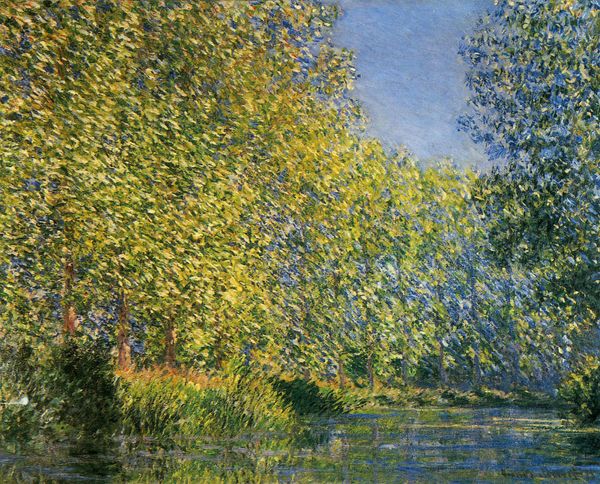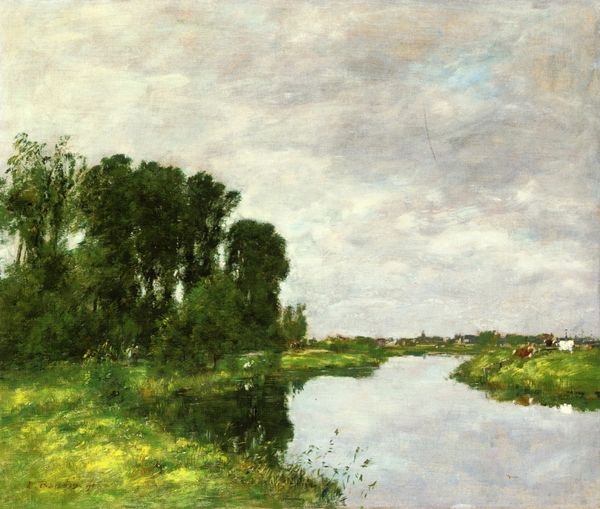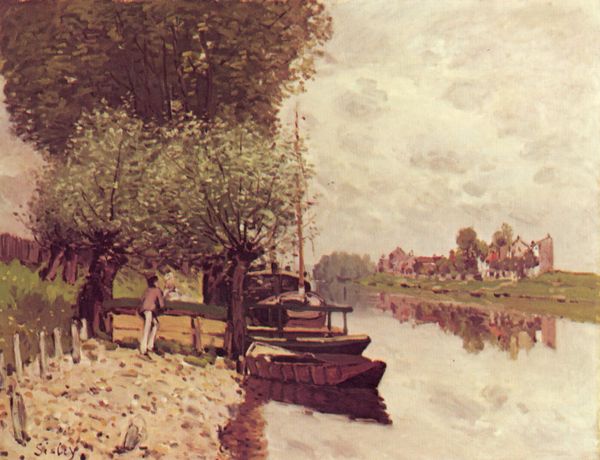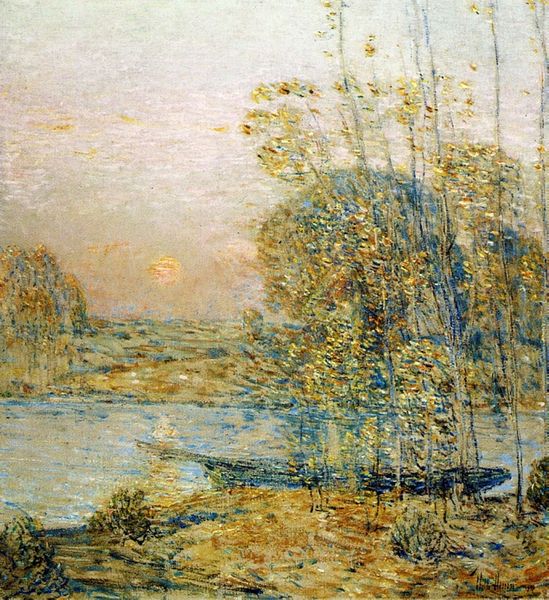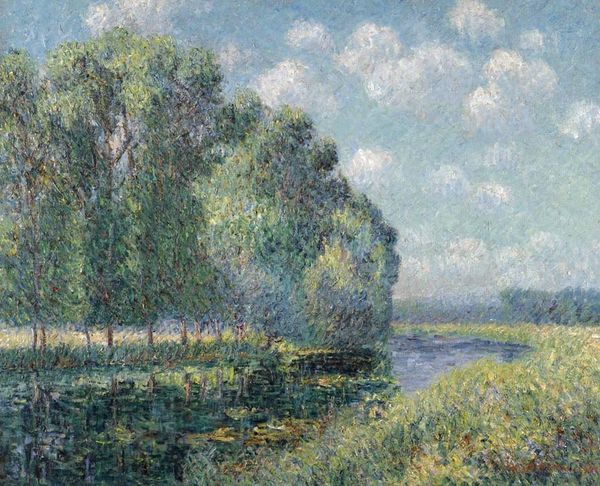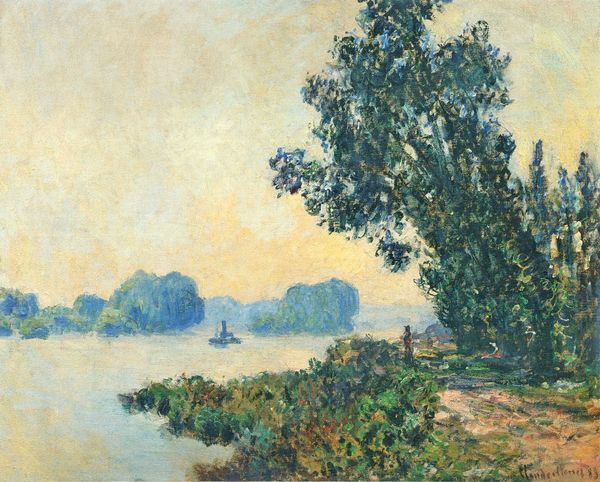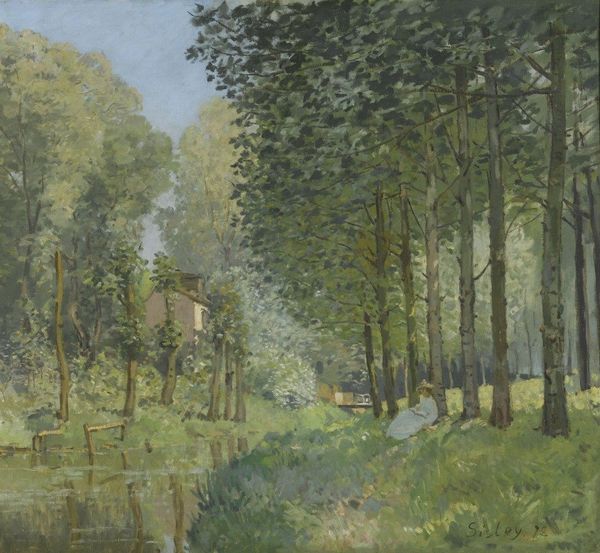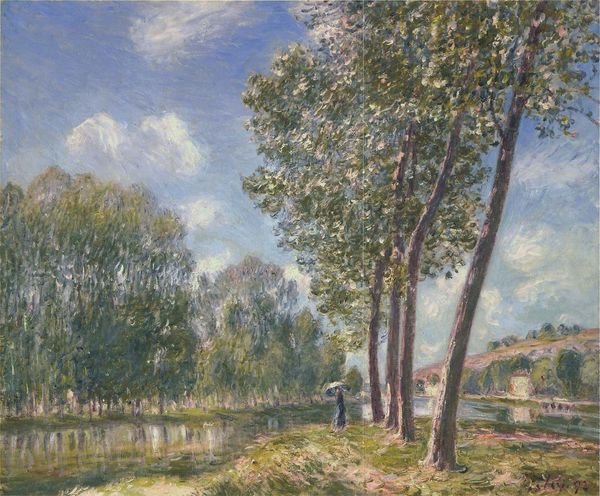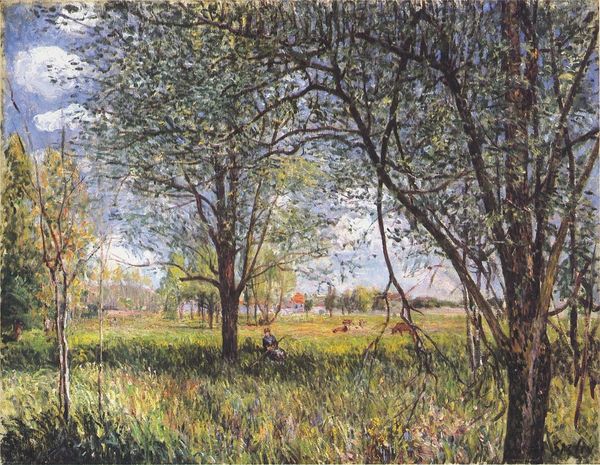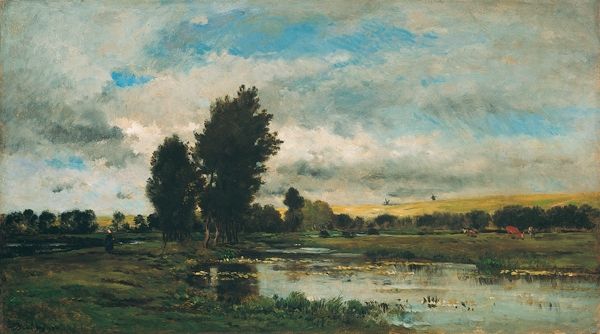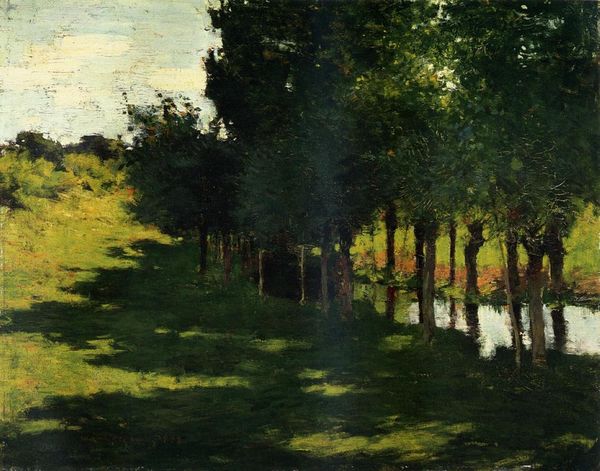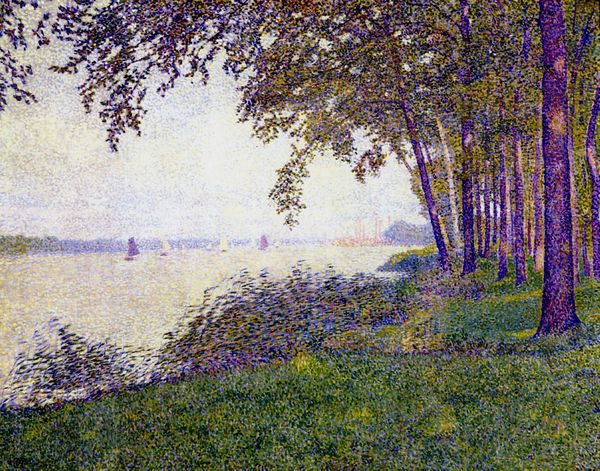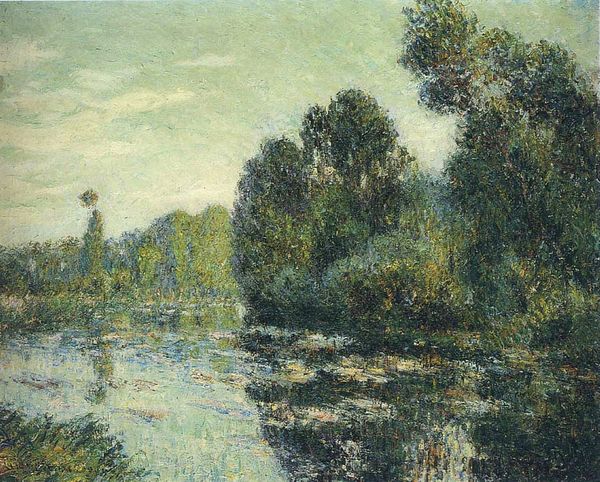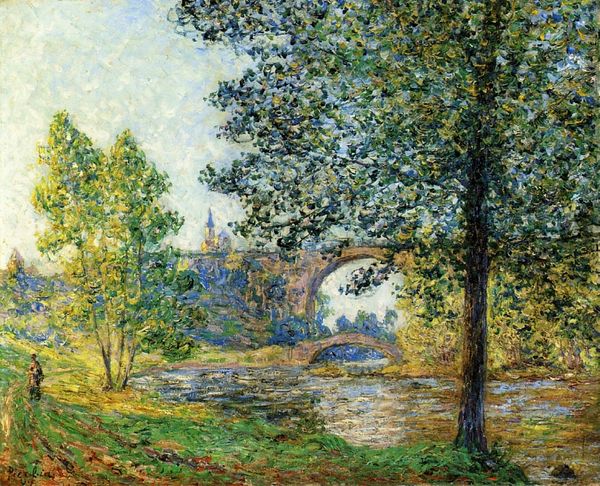
painting, plein-air, oil-paint
#
painting
#
impressionism
#
plein-air
#
oil-paint
#
landscape
#
river
#
impressionist landscape
Copyright: Public domain
Editor: So, this is Claude Monet’s "The Spring in Argenteuil," painted in 1872, using oil on canvas. I'm immediately struck by the light and how it almost seems to vibrate off the canvas. What do you see in this piece? Curator: Beyond the shimmering surface, I see a portrait of leisure and the changing social landscape of France in the aftermath of the Franco-Prussian War. Monet's Argenteuil wasn’t just a picturesque locale; it was a site of burgeoning industrialization and suburban expansion, driven by the railway. Consider the implications of *plein air* painting here – a deliberate act of engaging with the social realities *outside* the studio. Editor: That's interesting. I hadn't thought about it in terms of social context. I was just focusing on the beauty of the scene, the reflections on the water, the delicate brushstrokes… Curator: Exactly, and how might we interpret "beauty" in this historical context? Monet is capturing a specific moment, a fleeting impression. He offers an image of harmonious bourgeois life. Who had access to this leisure? Who is absent from the canvas? Thinking about Impressionism through a critical lens, it reveals its complicity with the social structures of its time. The seeming idyllic moment excludes many. How do the techniques reinforce a social point of view? Editor: So, by focusing on these quick impressions and leisure scenes, is Monet perhaps inadvertently glossing over some of the harsher realities of the time? Curator: Precisely. He is creating a world according to certain established aesthetic and social conventions. Exploring this tension allows us to grapple with the complexities inherent in depicting any moment in time. How much of what seems ‘natural’ is in fact culturally constructed? Editor: Wow, I’m never going to look at an Impressionist painting the same way again! Curator: Hopefully, you will view all art with a more critical perspective. Always questioning whose stories are being told, and perhaps more importantly, whose are being left out.
Comments
No comments
Be the first to comment and join the conversation on the ultimate creative platform.
